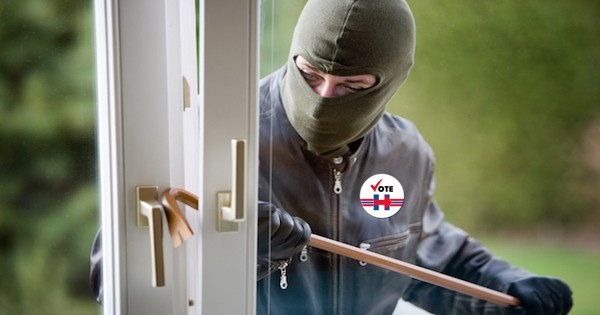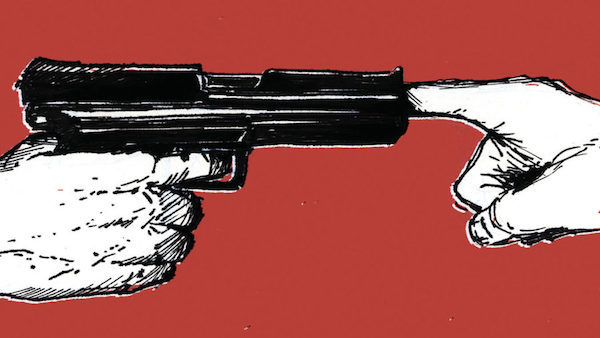The results of a new study about criminal behavior conducted by researchers from the University of Cincinnati, Florida State University, and Pennsylvania State University are sending shock waves across the nation.
Guest Post by Onan Coca
Four researchers sought to discover whether or not political ideology could predict criminal behavior, what they found could upend our entire political and criminal justice systems.
Political ideology represents an imperfect yet important indicator of a host of personality traits and cognitive preferences. These preferences, in turn, seemingly propel liberals and conservatives towards divergent life-course experiences. Criminal behavior represents one particular domain of conduct where differences rooted in political ideology may exist. Using a national dataset, we test whether and to what extent political ideology is predictive of self-reported criminal behavior. Our results show that self-identified political ideology is mono-tonically related to criminal conduct cross-sectionally and prospectively and that liberals self-report more criminal conduct than do conservatives. We discuss potential causal mechanisms relating political ideology to individual conduct.
The data was gathered through “self-reported” behavior and is therefore cannot be trusted as a fool-proof result, but it is instructive in explaining important cultural differences between conservatives and liberals. The data gathered and research presented seems to indicate a very strong correlation between political ideology and willingness to commit criminal behavior!
This dramatic chart is both compelling and astonishing:

The researchers do caution against assuming a causal relationship between liberal political ideology and criminal behavior, but they also observe that there is corresponding research that shows political conservatives are more closely associated with reduced criminal behavior.
[Lid note: if someone pointed out Hillary Clinton to them they might have made a stronger correlation between liberalism and criminal behavior.]
There is apparent scholarly agreement that conservatives more strongly value social order, respect for authority, and social conformity and that conservatives are more religious, more conscientious, and demonstrate higher levels of self-control. These traits and values likely influence lifestyle choices in ways that better insulate conservatives against criminal behavior. Moreover, conservative narratives about “free will, personal responsibility, and morality may gel into cognitive scripts that condemn criminal conduct as immoral and worthy of social sanctions.
The researchers also point out that academics and philosophers are realizing more and more that political ideology may play a larger role in our daily life than most people realize. In fact, political ideology may indicate what a person believes, thinks, and does in more places than just the voting booth.
Overall, our study joins a growing stream of empirical assessments that document differences between liberals and conservatives. Collectively, these studies show the potent yet often unexamined role political ideology plays in everyday life. Political ideology represents more than disparate views on the proper role of government and adherence to refined political theories. Ideology reflects an assortment of correlated beliefs and narratives about behavior that are internalized by individuals. These narratives likely impact individual choices, making some choices more likely and other choices less likely. Criminal behavior may also reflect choices rooted in ideological narratives—narratives that promote or reduce the occurrence of crime.
Cross-posted from Constitution.com






